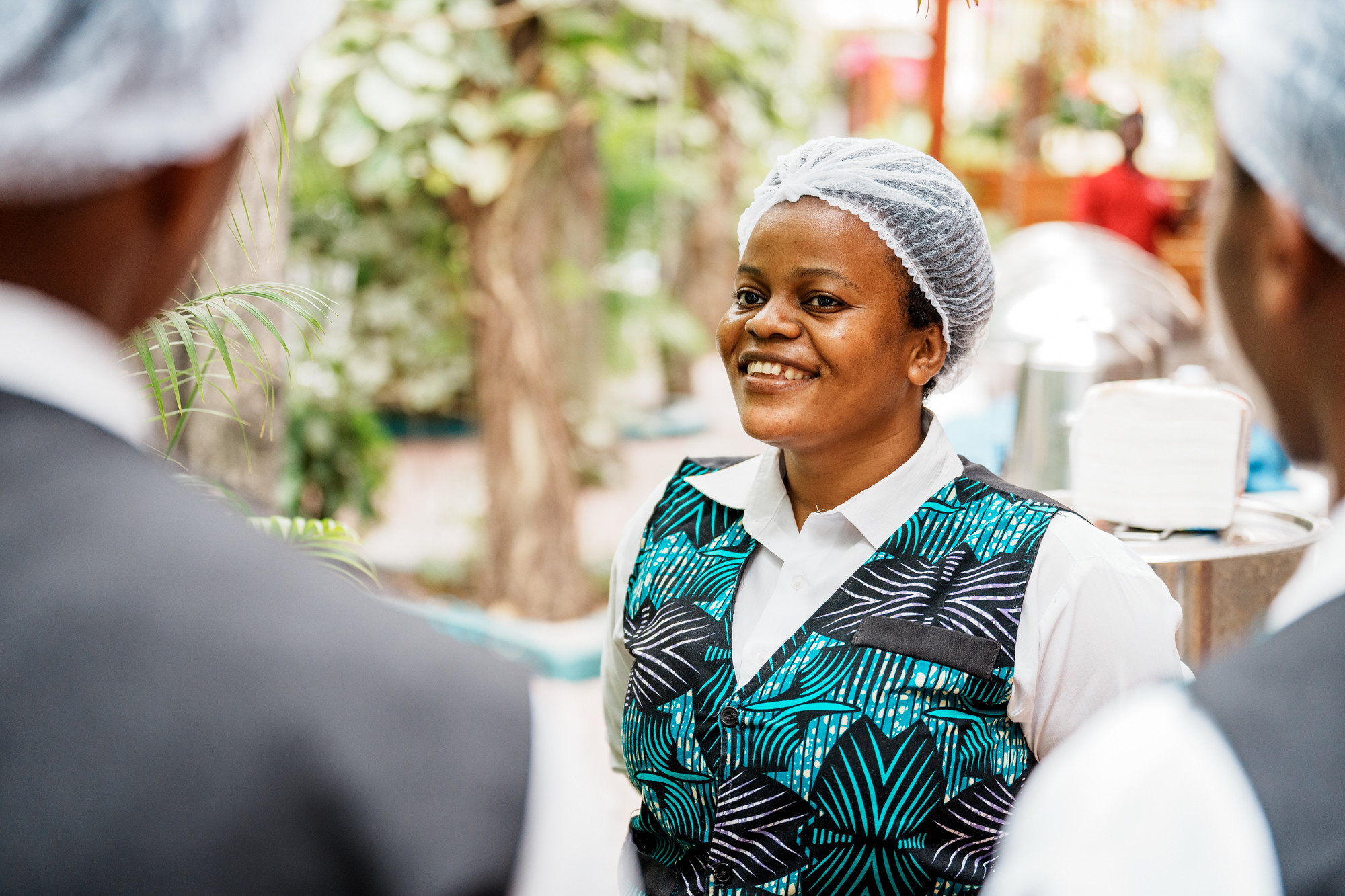Because She Could, I Can
A Story of Jobs, Resilience, and Finance.
Shedrack Mwitura, a father of two, rises early with his wife each morning in Tanzania’s Dar es Salaam. His two young children are getting ready for school, and like many working parents, he helps where he can. Straightening a collar, untangling a sleeve, making sure they leave the house on time.
After sending the children off to school, Shedrack climbs onto a boda boda, a motorbike taxi that weaves through Dar es Salaam’s growing sprawl, on his way to the Mbezi Garden Hotel, where he has worked for 20 years.
Shedrack started working at the hotel in 2005, one of many young men searching for steady work in a city where formal jobs were hard to find without connections or training. He began as a waiter, delivering hot plates in a restaurant that mostly served local businesspeople and the occasional expat. The hotel, founded decades ago, was a stalwart employer.
Through patience and loyalty, Shedrack advanced. He was promoted to barman but found that his strengths ran deeper than mixing drinks. Over time he rose through the ranks and today manages the hotel’s newly built function hall, leading a growing team as they prepare weddings, graduations, and business events.
During the post-pandemic rebound, he hired Mossi Mohammad, a single mother of three. Mossi lives on the city’s edge, in a neighborhood where electricity poles had long been installed but the connection fee was still beyond her reach. She started as a daiwaka – a casual dayworker.
Mossi’s schedule was unpredictable, but the work mattered. It paid for health insurance, kept her children in school, and allowed her to set aside a little each month toward a long-standing goal: wiring her home for electricity.
Through showing up, learning, and staying ready, Mossi earned a permanent position as a waitress and now provides a steadier life for her family.
For both Shedrack and Mossi, their jobs at the Mbezi Garden Hotel have been transformative. But what makes their story unusual is not just the work itself, it’s who made that work possible.
When COVID-19 hit Tanzania, hotel owner Haika Lawere faced a choice: scale back, or build for the future. With the help of a loan supported by the African Development Bank and We-Fi, she expanded, adding a function hall and creating new jobs when others were cutting back.
In a region where women entrepreneurs face a $42 billion financing gap, Haika’s story shows what happens when capital flows to the right hands.
Watch how one woman entrepreneur's decision helped a hotel survive, families stay afloat, and new opportunities emerge:
Watch the full story:
“Everyone has a dream. That’s why I work hard to support them.”
Mossi Mohammad, Waitress, MBezi Garden Hotel

